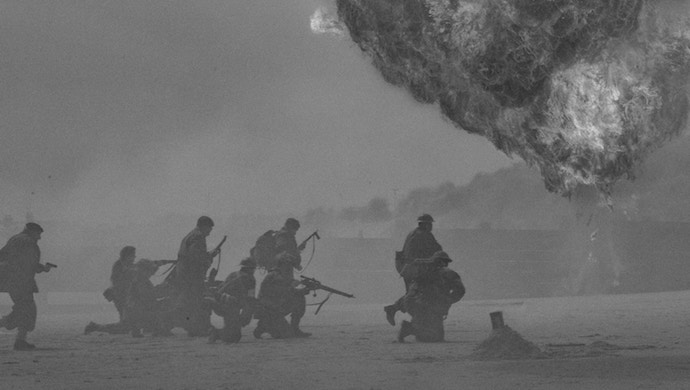
Despite all the hype surrounding Bitcoin and its promised overhaul of the current financial system, it would appear it has died before having its intended impact.
Silicon Valley, the pulsing heart and hub of global tech innovation, has lost its crypto buzz, mostly due to the digital currency’s lack of mainstream application in the real world.
It makes sense: Facebook and Uber have thrived because of their ability to be adopted wholeheartedly by the average person, while the notion of cryptocurrency still reeks of insider trading, security risk, and underground tech geek talk.
People still doubt whether a digital application, the very idea of which is difficult for the average Joe to understand, is to be trusted with something as valuable as one’s hard-earned money.
Who is to know where the money will go, or how much it will all be worth in 20 years’ time? Despite the fact that the very notion of crypto is premised entirely on it having the most high-level security in the world, the recent mysterious disappearances and deaths of those holding the keys to peoples’ digital wallets have people questioning whether it really is the safest place to keep their digital assets.
Cryptocurrency, or crypto – for those who have lain dormant for the past five odd years – is a digital asset designed to work as a medium of exchange. It uses cryptography to secure financial transactions, control the creation of additional units, and verify the transfer of assets.
Also Read: The call of crypto: why Bitcoin points to need for investment startups in Asia Pacific
Bitcoin is very often confused or used interchangeably with other monikers – typically, crypto or blockchain – albeit incorrectly, as is quite common with other new asset classes that fall under the umbrella of “cryptocurrency”, Bitcoin to cryptocurrency is what the US dollar is to currency – it is just one type of cryptocurrency.
Each bitcoin is a computer file that is stored in a ‘digital wallet’ app on a device such as a smartphone or a computer. People can send Bitcoins (or even portions of one bitcoin) to your digital wallet, and you can send bitcoins to other people as digital payment for an asset.
Every single transaction conducted via this digital realm is recorded in a public list that we refer to as ‘the blockchain’.
There you have it, the 101 in crypto and Bitcoin. But it may well be too late because apparently, it’s all over before it began.
Or is it?
This week, Iran downed a Ukranian passenger plane, believing it to be a US aircraft, in retaliation for a US airstrike that killed Iranian commander Qasem Soleimani.
Tehran also reacted to the death with missile strikes on Iraqi bases housing US troops. As tension between the two countries intensified, peaked, and fell, so too did the value of Bitcoin. The currency climbed higher to almost US$8,500 – almost 10 per cent higher than it was the day before – after news reports of Iran’s missile attack on US-led forces in Iraq, before falling back to less than US$8,000 following President Trump’s White House speech that suggested the situation was less volatile than it really was.
The sharp movement of the cryptocurrency’s value has rekindled a long-standing debate: does crypto become a safe-haven asset, like gold, in times of increased geopolitical and economic turmoil, or will it forever be a fringe tool used for cybercrime?
Also Read: Today’s top tech news: Uber reveals “super app” plan, Bitcoin falls below US$8K
And is this what will ensure its longevity and survival over the coming turbulent years?
What is interesting to note is that while bitcoin surged in value following the airstrike, US stocks fell as investors grew worried that the conflict between the two nations might escalate into a prolonged and damaging third war. That being said, US stocks shortly returned and even grew the following night, suggesting that the market was opting to “shrug off” the escalating war. S&P actually powered to a new all-time high in the wake of the attack.
Jens Nordvig, CEO of Exante Data, said of the correlation between the market and rising tensions, “I think the lesson from the last couple of years is it’s quite dangerous to get trapped in these risk-aversion news cycles because they don’t tend to last very long.”
Does this, then, mean that the growth in the value of Bitcoin immediately following the international incident was a mere one-off? That soon investors will realise the market only moves due to widespread panic, and that all it takes is the psyche trip that President Trump took investors on when suggesting nothing too dire would anytime soon happen in the Middle East?
Oil prices surge whenever anything of potential consequence happens in the Middle East. US stocks fall whenever something happens that could disrupt the global flow of trade into the world’s largest economy.
Is crypto simply much of the same? A financial asset that is regulated just as much by geopolitical events by any other?
Greg Cipolaro, co-founder of Digital Asset Research, says that Bitcoin, ultimately, is a hedge against inflation. “Acts of violence and war can create inflation and have demonstrated that in the past … so heightened violence now could portend higher demand for Bitcoin.”
–
Editor’s note: e27 aims to foster thought leadership by publishing contributions from the community. Become a thought leader in the community and share your opinions or ideas and earn a byline by submitting a post.
Join our e27 Telegram group, or like the e27 Facebook page.
Image credit: Duncan Kidd on Unsplash
The post Is Bitcoin the safest currency in times of rising global tensions? appeared first on e27.